Presidents of America
The President of the United States is the leader of the country. They are like the captain of a big ship, guiding the country and making important decisions. There have been many different presidents throughout history, each with their own unique personality and accomplishments.
Some presidents have helped to make the country a better place by creating new laws or helping to end wars. Others have faced challenges and made mistakes, but they have all worked hard to serve their country and make it a better place. From the very first president, George Washington, to the most recent president, Joe Biden, each leader has played an important role in shaping the United States into the country it is today.
George Washington (1789-1797)
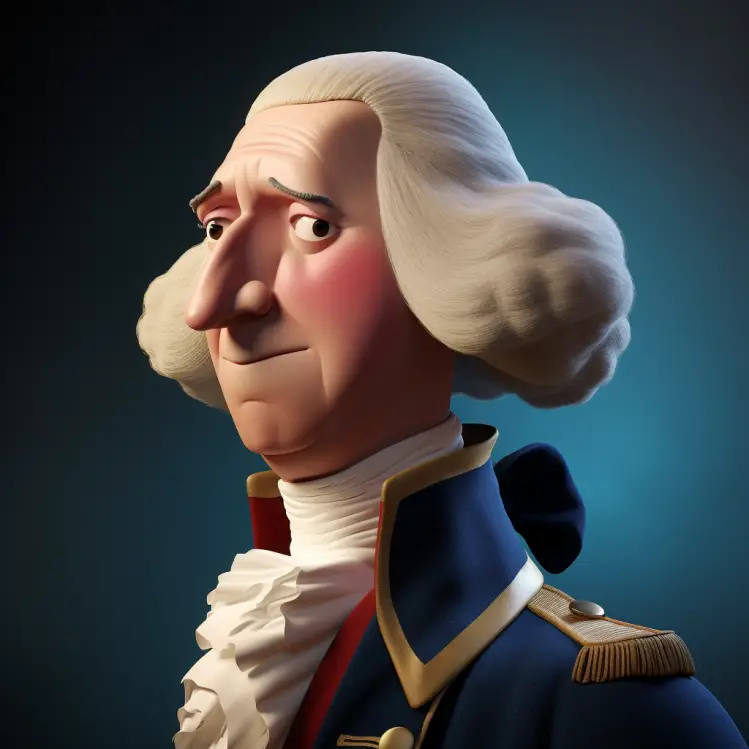
George Washington was the first President of the United States. He was born in Virginia in 1732 and lived a long and interesting life. As a child, he loved to explore and was interested in the outdoors. He became a skilled surveyor and learned how to map out land.
Washington was a great leader. He led the American army to victory in the Revolutionary War, which led to the United States gaining its independence from Great Britain. After the war, he became the country’s first President and helped create the Constitution, which is still the foundation of the United States’ government today. He believed in the importance of unity and worked to bring the different states together as one country.
Washington was also known for his honesty and integrity. He was often called the “father of his country” because of his strong leadership and dedication to the United States. He set a great example for future Presidents and continues to be remembered as one of the most important figures in American history.
John Adams (1797-1801)

John Adams was the second President of the United States. He was born in Massachusetts in 1735 and had a great love for learning. He became a lawyer and was known for being very smart and hardworking.
Adams was a key figure in the American Revolution. He helped draft the Declaration of Independence, which declared the colonies’ independence from Great Britain. After the war, he served as a diplomat in Europe and helped negotiate peace treaties. He was also a strong advocate for the Constitution and believed in the importance of a strong federal government.
As President, Adams faced many challenges. He had to deal with tensions between the United States and France, which led to the Quasi-War. He also signed the Alien and Sedition Acts, which were controversial laws that restricted freedom of speech and the press. Despite these challenges, Adams worked hard to keep the country united and to uphold the principles of democracy.
Thomas Jefferson (1801-1809)
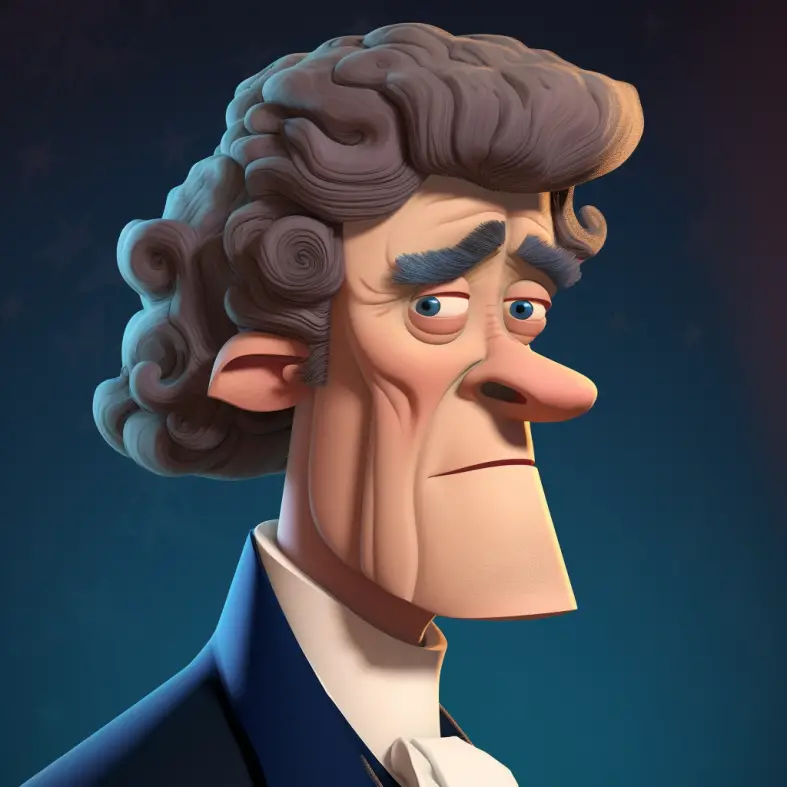
Thomas Jefferson was the third President of the United States. He was born in Virginia in 1743 and was known for being a great writer and thinker. He wrote the Declaration of Independence, which declared the colonies’ independence from Great Britain.
Jefferson believed in the importance of democracy and the power of the people. He worked to expand the rights of citizens and helped establish the United States as a free and independent country. He was also a strong supporter of education and helped found the University of Virginia.
As President, Jefferson faced many challenges. He oversaw the Louisiana Purchase, which doubled the size of the United States. He also had to deal with tensions with Britain and France, which eventually led to the War of 1812. Despite these challenges, Jefferson remained committed to his principles and worked to uphold the values of the United States.
James Madison (1809-1817)

James Madison was the fourth President of the United States. He was born in Virginia in 1751 and was known for being a great thinker and writer. He played an important role in drafting the United States Constitution and the Bill of Rights, which protect the rights of American citizens.
Madison was a key figure in the War of 1812, which was fought between the United States and Great Britain. He served as President during the war and worked to defend the country against British attacks. He also oversaw the burning of the White House by British troops.
Madison was a dedicated public servant who worked tirelessly to build a strong and united country. He believed in the importance of democracy and the power of the people. He also believed in the importance of education and helped found the University of Virginia.
James Monroe (1817-1825)

James Monroe was the fifth President of the United States. He was born in Virginia in 1758 and was known for being a soldier, lawyer, and diplomat. He played a key role in negotiating the Louisiana Purchase, which doubled the size of the United States.
Monroe was also known for the “Monroe Doctrine,” which declared that the United States would not tolerate European interference in the affairs of the Western Hemisphere. This was an important statement that helped establish the United States as a world power.
As President, Monroe oversaw a period of growth and expansion in the United States. He signed the Missouri Compromise, which helped resolve tensions between free and slave states. He also helped establish diplomatic relations with many countries around the world, including Russia and Great Britain.
John Quincy Adams (1825-1829)
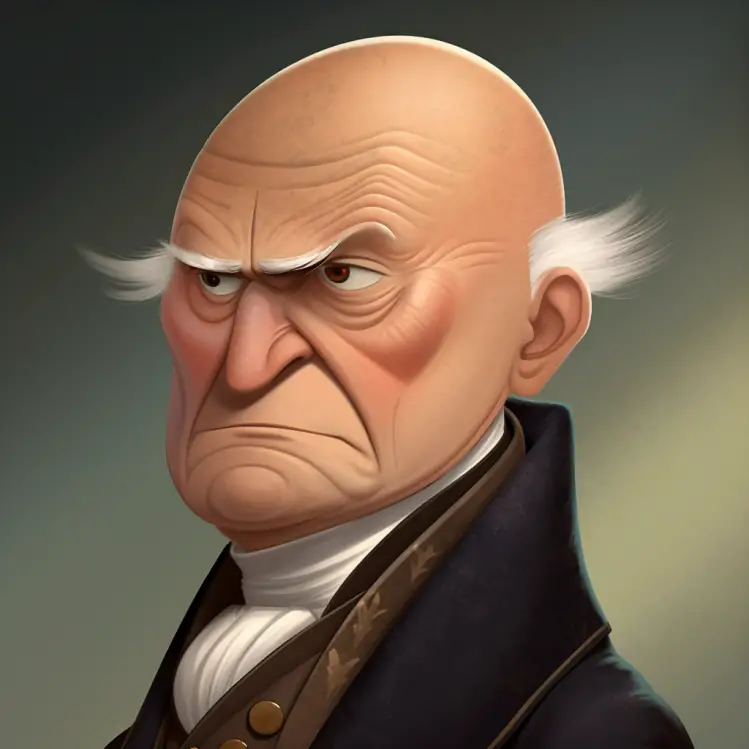
John Quincy Adams was the sixth President of the United States. He was born in Massachusetts in 1767 and was known for being a great thinker and diplomat. He served as a diplomat in Europe and helped negotiate important treaties with other countries.
Adams was a strong advocate for education and helped establish the Smithsonian Institution, which is a museum and research center that promotes learning and discovery. He also fought against slavery and believed in the importance of human rights.
As President, Adams faced many challenges. He had to deal with tensions between the United States and other countries, including Spain and Great Britain. He also faced criticism for his efforts to modernize the country’s infrastructure, including roads and canals.
Andrew Jackson (1829-1837)

Andrew Jackson was the seventh President of the United States. He was born in the Carolinas in 1767 and was known for being a soldier and a politician. He was a hero of the War of 1812 and is famous for leading American troops to victory at the Battle of New Orleans.
Jackson was a strong advocate for the common people and believed in the importance of democracy. He worked to expand voting rights and helped establish the Democratic Party. However, he also had controversial views on Native Americans and was responsible for the forced removal of many Native Americans from their ancestral lands.
As President, Jackson faced many challenges. He had to deal with tensions between the United States and other countries, including Spain and Great Britain. He also faced economic problems, including a financial crisis that led to the Panic of 1837.
Martin Van Buren (1837-1841)

Martin Van Buren was the eighth President of the United States. He was born in New York in 1782 and was known for being a skilled politician. He served as the Secretary of State and Vice President under Andrew Jackson.
Van Buren was a strong advocate for democracy and believed in the importance of the common people. He helped establish the Democratic Party and worked to expand voting rights. He also played a key role in American foreign policy, including helping to negotiate a treaty with Great Britain.
As President, Van Buren faced many challenges. He had to deal with economic problems, including the Panic of 1837, which was a financial crisis that led to a depression. He also had to deal with tensions between the United States and other countries, including Great Britain and Mexico.
William Henry Harrison (1841)
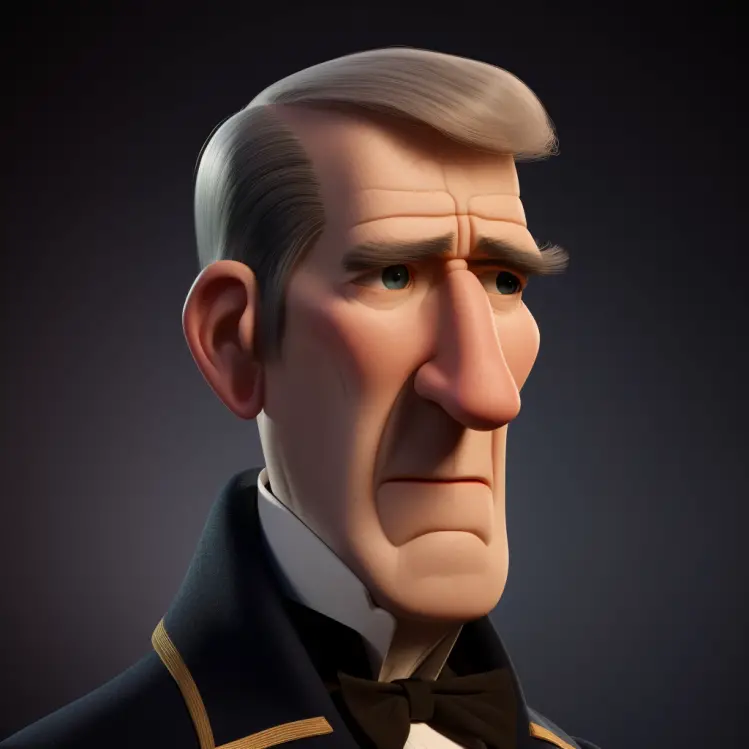
William Henry Harrison was the ninth President of the United States. He was born in Virginia in 1773 and was known for being a soldier and politician. He was a hero of the Battle of Tippecanoe, which was a conflict between American forces and Native Americans.
Harrison was a strong advocate for expansion and believed in the importance of territorial growth. He helped negotiate treaties with Native American tribes and played a key role in establishing the territories of Indiana, Illinois, and Wisconsin.
As President, Harrison faced many challenges. He had to deal with economic problems, including a depression that had started during the previous administration. However, he was only in office for a short time, as he became ill and died just 31 days after his inauguration.
John Tyler (1841-1845)
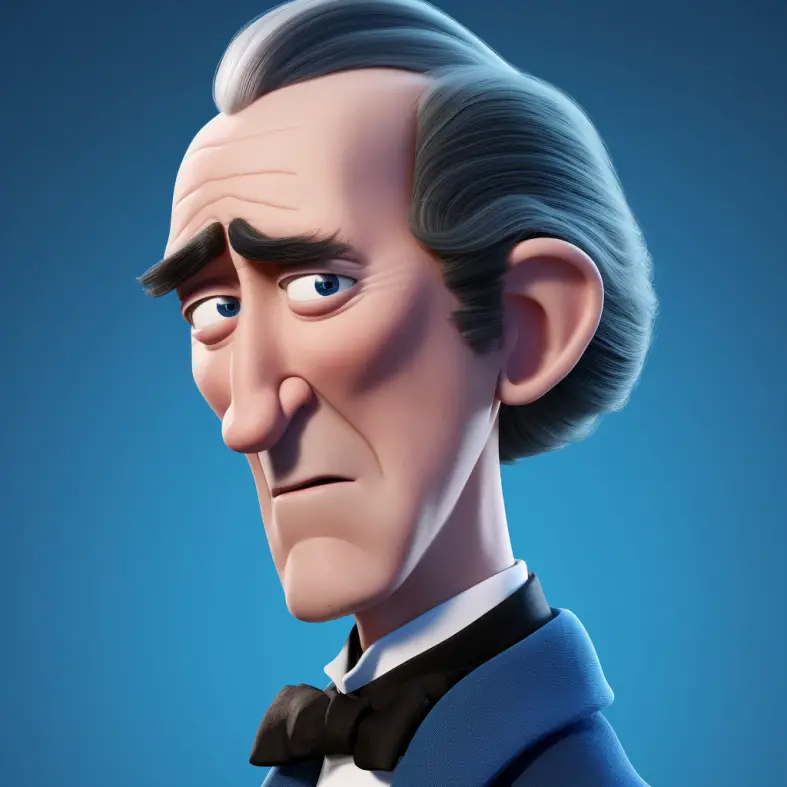
John Tyler was the tenth President of the United States. He was born in Virginia in 1790 and was known for being a politician and a lawyer. He served in many different government positions before becoming President.
Tyler became President after the death of William Henry Harrison. He was the first Vice President to become President because of the death of the President. As President, Tyler faced many challenges, including tensions with Great Britain and economic problems.
Tyler was a strong advocate for states’ rights and believed in the importance of limited government. He was also a slaveholder and supported the expansion of slavery. Despite his controversial views, Tyler played an important role in shaping the country’s early history and in establishing the presidency as we know it today.
James K Polk ( 1845– 1849 )
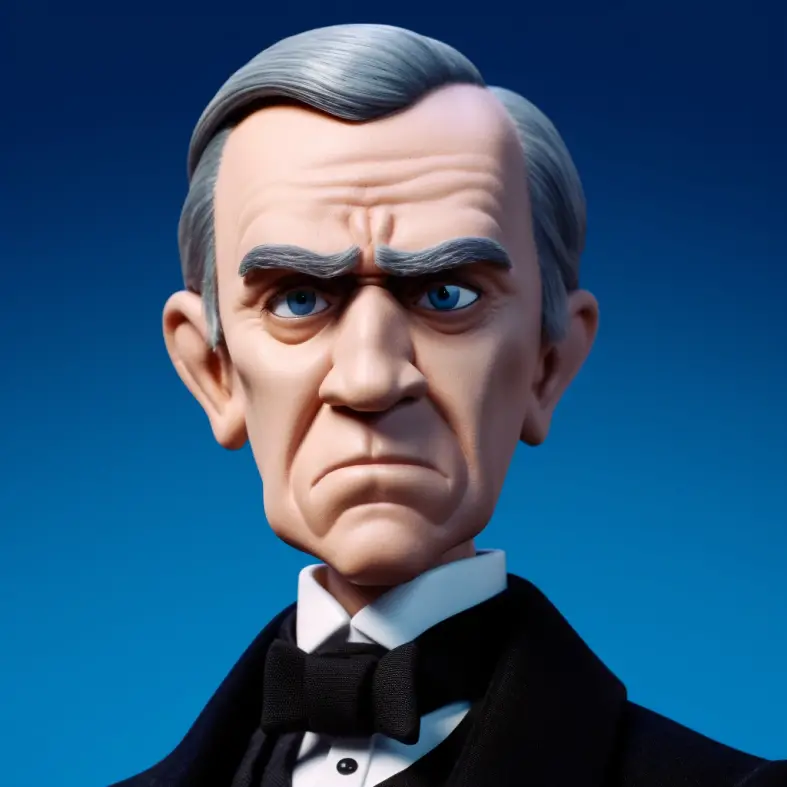
James K. Polk was the 11th President of the United States. He was born in North Carolina in 1795 and was known for being a politician and lawyer. As President, Polk oversaw a period of expansion and growth for the United States.
Polk was a strong advocate for territorial expansion and worked to acquire new territories for the United States. He oversaw the annexation of Texas, which led to a conflict with Mexico. He also helped negotiate the Treaty of Guadalupe Hidalgo, which ended the Mexican-American War and established the current borders of the United States.
Polk was a hardworking and dedicated President. He accomplished many of his goals during his time in office, but his hard work took a toll on his health. He died just three months after leaving office.
Zachary Taylor ( 1849– 1850 )

Zachary Taylor was the 12th President of the United States. He was born in Virginia in 1784 and was known for being a soldier. He served in the United States Army for many years before becoming President.
As a soldier, Taylor was a hero of the Mexican-American War. He led American forces to victory in several battles and helped secure new territories for the United States. He was known for his bravery and his leadership skills.
As President, Taylor faced many challenges. He had to deal with tensions between free and slave states and with conflicts over territorial expansion. He also faced economic problems, including a depression that had started during the previous administration.
Unfortunately, Taylor’s time as President was short-lived. He became ill and died just 16 months after taking office. Despite his brief time in office, Taylor played an important role in shaping the country’s history and in establishing the presidency as we know it today.
Millard Fillmore ( 1850– 1853 )

Millard Fillmore was the 13th President of the United States. He was born in New York in 1800 and was known for being a lawyer and politician. He served in many different government positions before becoming President.
As President, Fillmore faced many challenges. He had to deal with tensions between free and slave states and with conflicts over territorial expansion. He also had to deal with economic problems, including a depression that had started during the previous administration.
Fillmore was a strong advocate for compromise and believed in the importance of finding common ground. He played a key role in passing the Compromise of 1850, which helped resolve tensions between free and slave states. However, his support of the Fugitive Slave Act, which required the return of runaway slaves to their owners, remains controversial.
Franklin Pierce ( 1853– 1857 )
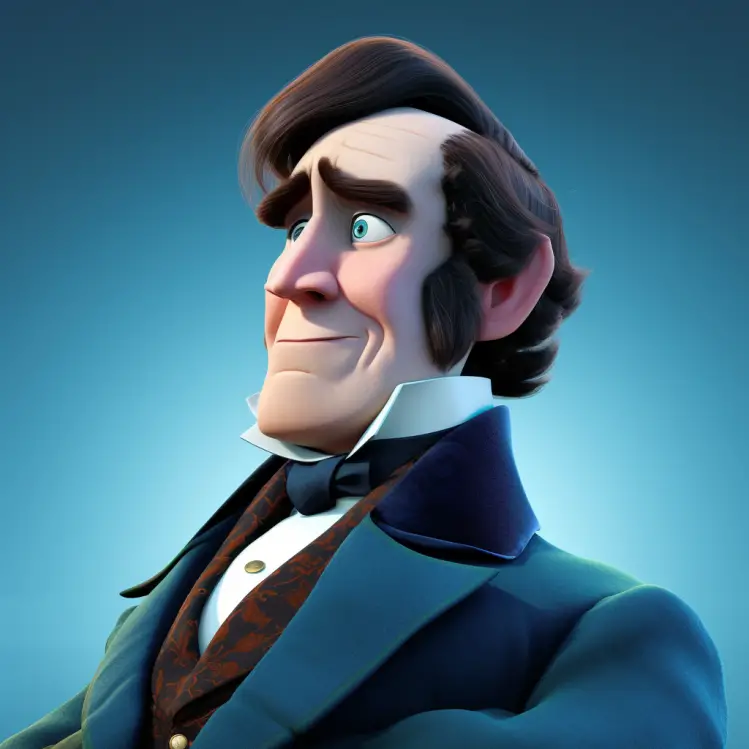
Franklin Pierce was the 14th President of the United States. He was born in New Hampshire in 1804 and was known for being a lawyer and politician. He served in many different government positions before becoming President.
As President, Pierce faced many challenges. He had to deal with tensions between free and slave states and with conflicts over territorial expansion. He also had to deal with economic problems, including a depression that had started during the previous administration.
Pierce was a strong advocate for the rights of individual states and believed in the importance of limited government. However, his support of the Kansas-Nebraska Act, which allowed for the expansion of slavery into new territories, remains controversial.
James Buchanan ( 1857– 1861 )
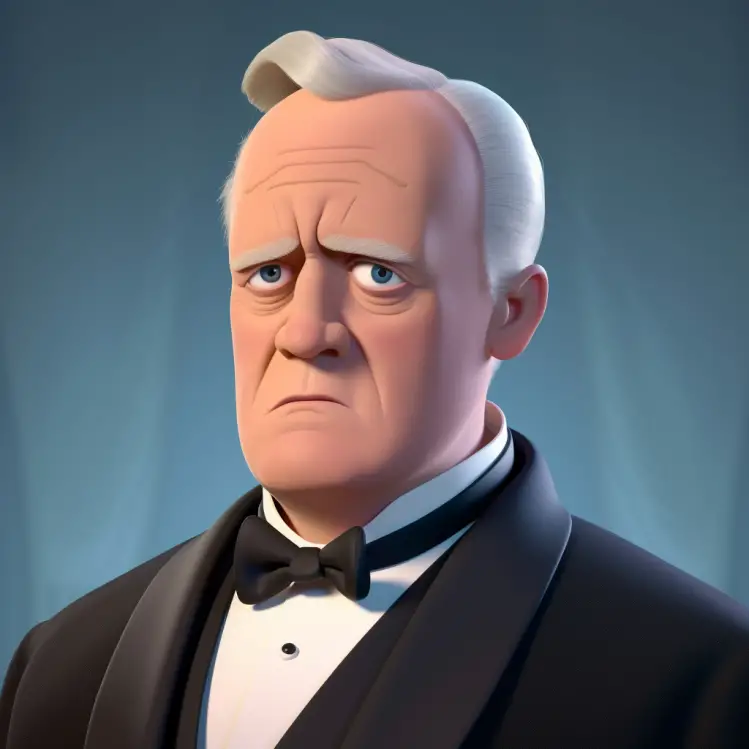
James Buchanan was the 15th President of the United States. He was born in Pennsylvania in 1791 and was known for being a lawyer and politician. He served in many different government positions before becoming President.
As President, Buchanan faced many challenges. He had to deal with tensions between free and slave states and with conflicts over territorial expansion. He also had to deal with economic problems, including a depression that had started during the previous administration.
Buchanan was a strong believer in states’ rights and believed that individual states should be able to make their own decisions. However, his support of the Supreme Court’s decision in the Dred Scott case, which declared that African Americans were not citizens and could not sue in federal court, remains controversial.
Abraham Lincoln ( 1861– 1865 )

Abraham Lincoln was the 16th President of the United States. He was born in Kentucky in 1809 and is one of the most famous American presidents. He is known for his leadership during the Civil War and for his efforts to end slavery.
As President, Lincoln faced many challenges. He had to deal with the secession of Southern states and the start of the Civil War. He worked to preserve the Union and fought to end slavery, which he believed was morally wrong.
Lincoln was a great orator and is known for his famous speeches, including the Gettysburg Address and his Second Inaugural Address. He also issued the Emancipation Proclamation, which declared that all slaves in Confederate-held territories were free.
Andrew Johnson ( 1865– 1869 )

Andrew Johnson was the 17th President of the United States. He was born in North Carolina in 1808 and was known for being a politician. He served as Vice President under Abraham Lincoln before becoming President.
As President, Johnson faced many challenges. He had to deal with the aftermath of the Civil War and with tensions between Congress and the executive branch. He also had to deal with economic problems, including a depression that had started during the previous administration.
Johnson was a strong advocate for states’ rights and believed in the importance of limiting the power of the federal government. However, his opposition to Reconstruction efforts and his veto of key civil rights legislation, including the Civil Rights Act of 1866, remain controversial.
Ulysses S Grant ( 1869– 1877 )

Ulysses S. Grant was the 18th President of the United States. He was born in Ohio in 1822 and was known for being a soldier. He served in the United States Army for many years before becoming President.
As President, Grant faced many challenges. He had to deal with the aftermath of the Civil War and with tensions between white settlers and Native Americans. He also had to deal with economic problems, including a depression that had started during the previous administration.
Grant was a strong advocate for civil rights and worked to protect the rights of African Americans. He also worked to reform the government and to promote efficiency and honesty in public service. However, his administration was also marked by corruption scandals.
Rutherford B Hayes ( 1877– 1881 )
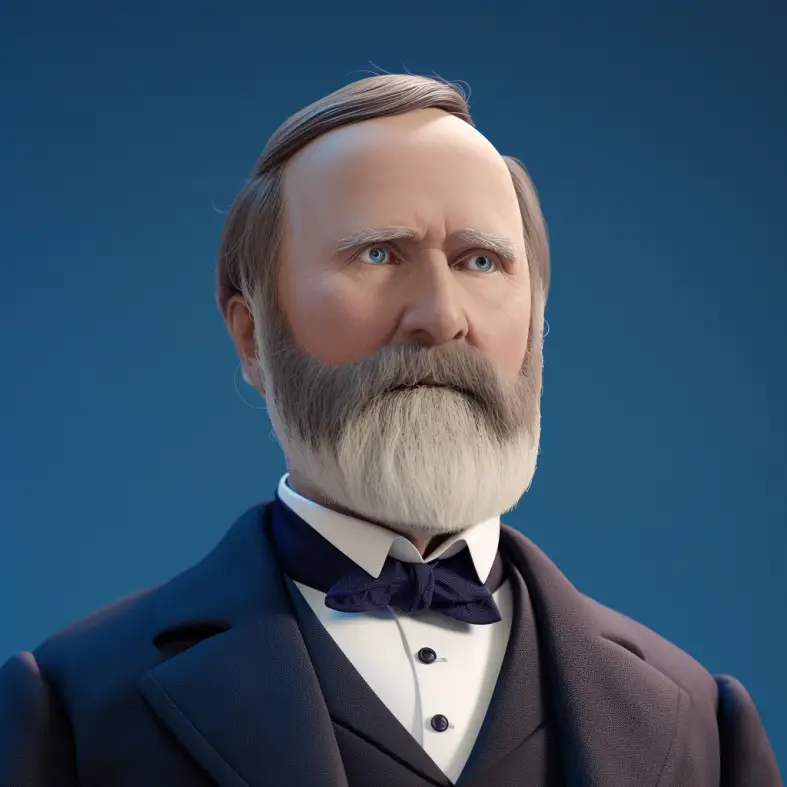
Rutherford B. Hayes was the 19th President of the United States. He was born in Ohio in 1822 and was known for being a lawyer and politician. He served in many different government positions before becoming President.
As President, Hayes faced many challenges. He had to deal with the aftermath of the Civil War and with tensions between white settlers and Native Americans. He also had to deal with economic problems, including a depression that had started during the previous administration.
Hayes was a strong advocate for civil rights and worked to protect the rights of African Americans. He also worked to reform the government and to promote efficiency and honesty in public service. He is known for his efforts to promote education and for his support of women’s rights.
James A Garfield (1881)
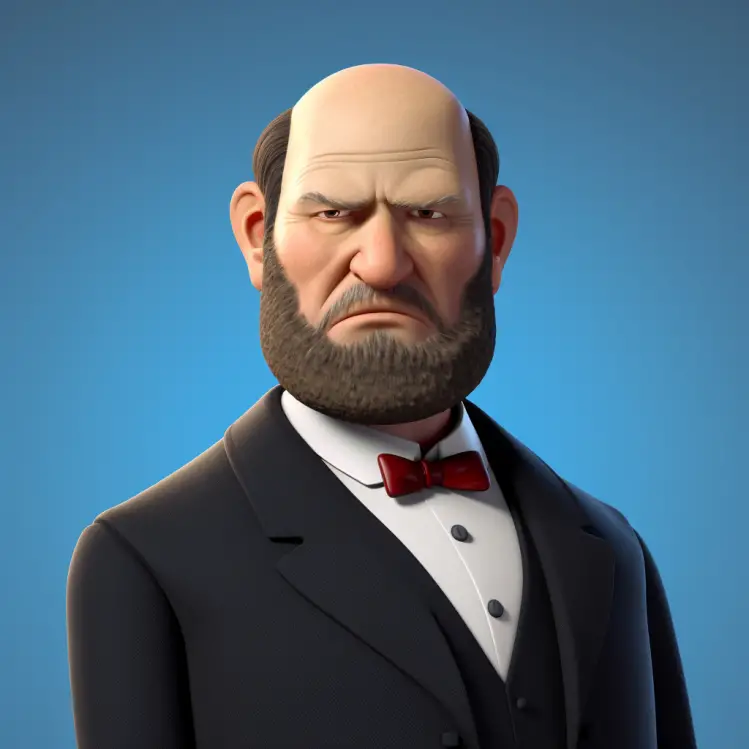
James A. Garfield was the 20th President of the United States. He was born in Ohio in 1831 and was known for being a teacher, lawyer, and politician. He served in the United States House of Representatives before becoming President.
As President, Garfield faced many challenges. He had to deal with tensions between white settlers and Native Americans and with economic problems, including a depression that had started during the previous administration.
Garfield was a strong advocate for civil rights and worked to protect the rights of African Americans. He also worked to reform the government and to promote efficiency and honesty in public service. However, his time in office was cut short when he was assassinated just four months after taking office.
Chester A Arthur (1881-1885)
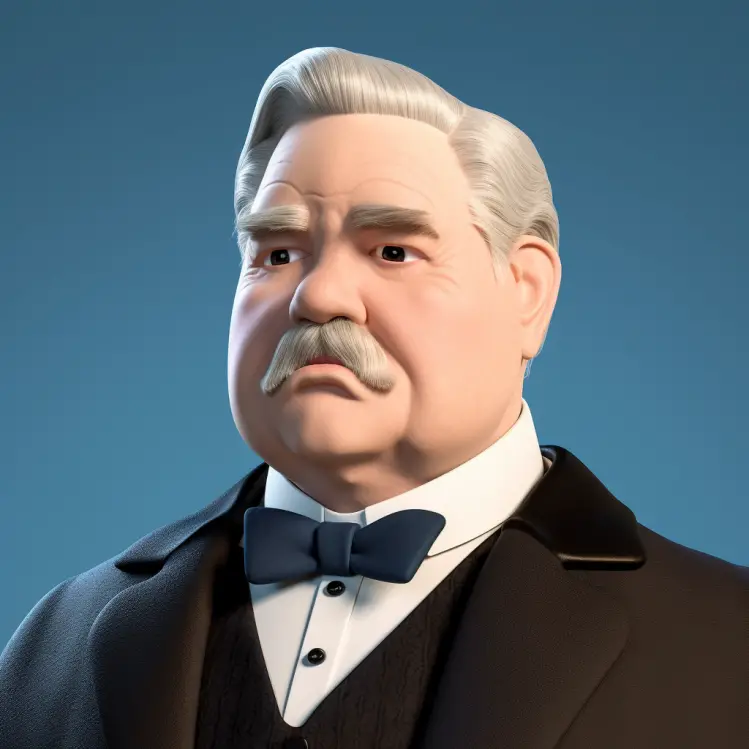
Chester A. Arthur was the 21st President of the United States. He was born in Vermont in 1829 and was known for being a lawyer and politician. He served in many different government positions before becoming President.
As President, Arthur faced many challenges. He had to deal with tensions between the United States and other countries and with economic problems, including a depression that had started during the previous administration.
Arthur worked to reform the government and to promote efficiency and honesty in public service. He signed the Pendleton Civil Service Reform Act, which created a system for hiring government employees based on merit rather than political connections. He also worked to modernize the Navy and to improve the country’s infrastructure.
Grover Cleveland (1885-1889, 1893-1897)
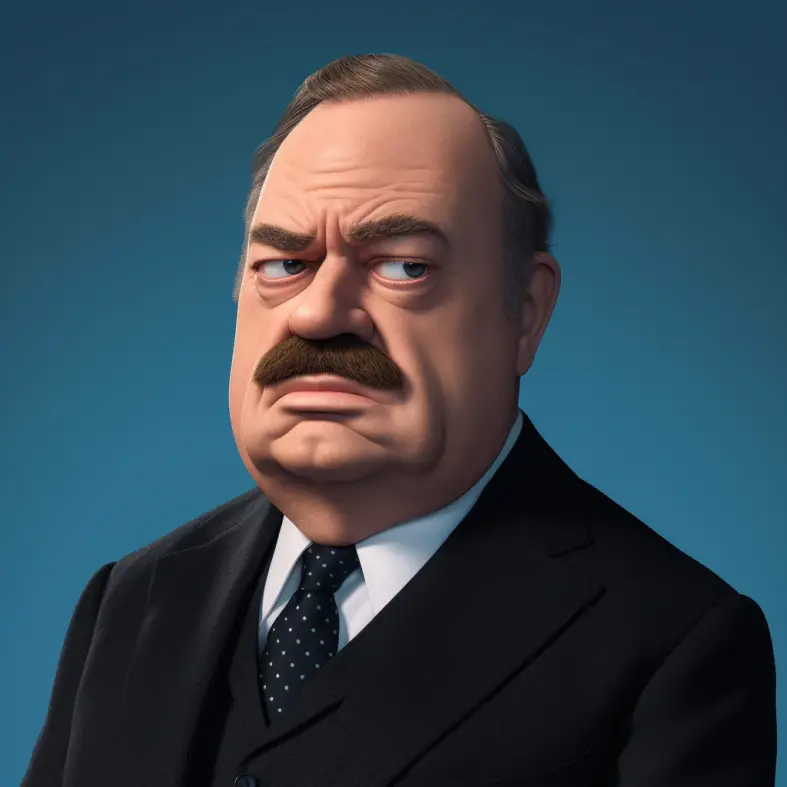
Grover Cleveland was the 22nd and 24th President of the United States. He was born in New Jersey in 1837 and was known for being a lawyer and politician. He served as Governor of New York before becoming President.
As President, Cleveland faced many challenges. He had to deal with economic problems, including a depression that had started during the previous administration. He also had to deal with tensions between the United States and other countries.
Cleveland worked to promote honesty and integrity in government. He fought against political corruption and vetoed many bills that he believed were wasteful or unconstitutional. He also worked to improve the lives of workers and to protect their rights.
Benjamin Harrison (1889-1893)

Benjamin Harrison was the 23rd President of the United States. He was born in Ohio in 1833 and was known for being a lawyer and politician. He served in the United States Senate before becoming President.
As President, Harrison faced many challenges. He had to deal with economic problems, including a depression that had started during the previous administration. He also had to deal with tensions between the United States and other countries.
Harrison worked to improve the lives of workers and to protect their rights. He signed the Sherman Antitrust Act, which helped to break up monopolies and promote fair competition. He also worked to expand the country’s navy and to protect American interests overseas.
William McKinley (1897-1901)
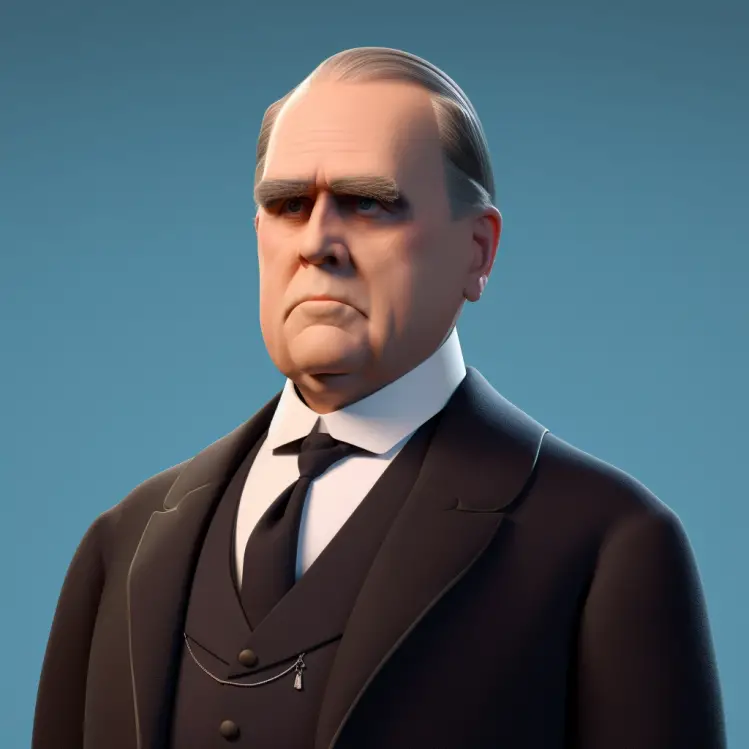
William McKinley was the 25th President of the United States. He was born in Ohio in 1843 and was known for being a lawyer and politician. He served in the United States House of Representatives before becoming President.
As President, McKinley faced many challenges. He had to deal with economic problems, including a depression that had started during the previous administration. He also had to deal with tensions between the United States and other countries, including Spain.
McKinley worked to promote economic growth and protect American interests overseas. He signed the Dingley Tariff, which helped to protect American businesses from foreign competition. He also led the country into the Spanish-American War, which resulted in the United States gaining control of Puerto Rico, Guam, and the Philippines.
Theodore Roosevelt (1901-1909)
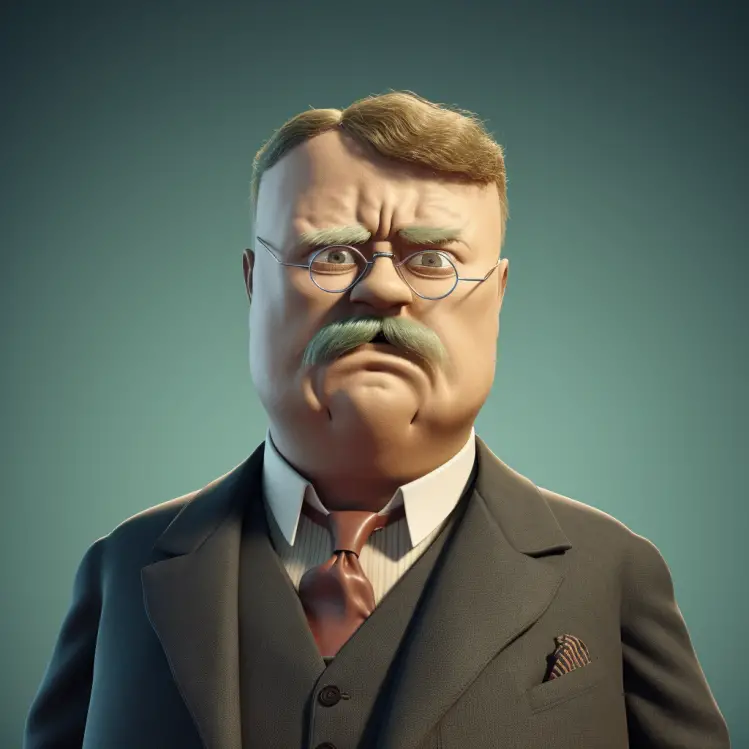
Theodore Roosevelt was the 26th President of the United States. He was born in New York in 1858 and was known for being a writer, soldier, and politician. He served as Governor of New York before becoming President.
As President, Roosevelt faced many challenges. He had to deal with economic problems, including a financial panic in 1907. He also had to deal with tensions between the United States and other countries, including Japan and Russia.
Roosevelt was a strong advocate for conservation and worked to protect the environment. He signed the Antiquities Act, which allowed him to create many national parks and monuments. He was also a supporter of workers’ rights and worked to improve working conditions and to regulate businesses.
William Howard Taft (1909-1913)
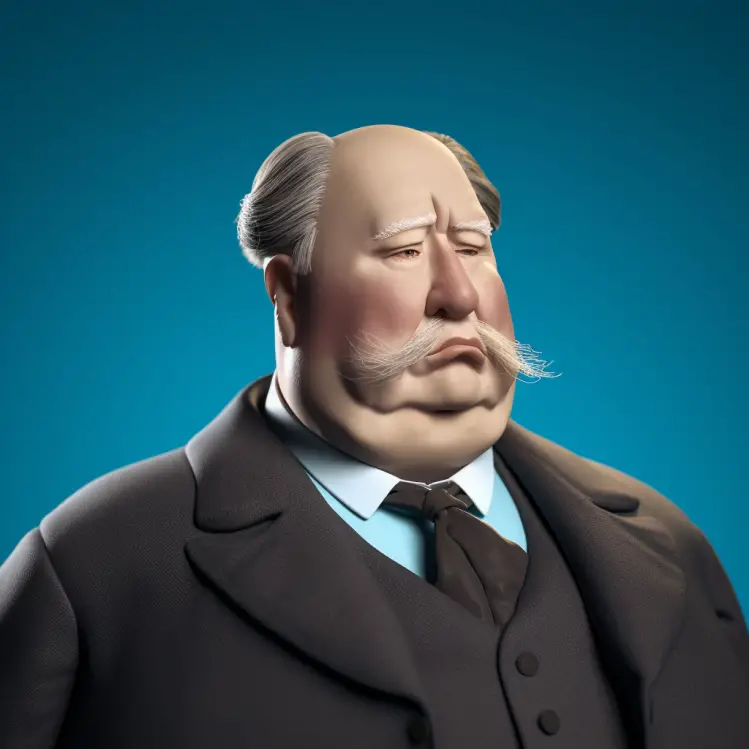
William Howard Taft was the 27th President of the United States. He was born in Ohio in 1857 and was known for being a lawyer and judge. He served as Governor-General of the Philippines and Secretary of War before becoming President.
As President, Taft faced many challenges. He had to deal with economic problems, including a recession that had started during the previous administration. He also had to deal with tensions between the United States and other countries, including Mexico and Japan.
Taft was a strong advocate for trust-busting and worked to break up large corporations that were hurting competition. He signed the Payne-Aldrich Tariff, which raised taxes on many imported goods, but this was not popular with many Americans. He also worked to promote conservation and to protect the environment.
Woodrow Wilson (1913-1921)

Woodrow Wilson was the 28th President of the United States. He was born in Virginia in 1856 and was known for being a scholar and politician. He served as Governor of New Jersey before becoming President.
As President, Wilson faced many challenges. He had to deal with economic problems, including a recession that had started during the previous administration. He also had to deal with tensions between the United States and other countries, including Germany.
Wilson was a strong advocate for peace and worked to promote international cooperation. He led the United States into World War I in 1917, and he helped to negotiate the Treaty of Versailles, which ended the war. He also worked to promote reforms in government, including the passage of the 19th Amendment, which gave women the right to vote.
Warren G Harding (1921-1923)

Warren G. Harding was the 29th President of the United States. He was born in Ohio in 1865 and was known for being a newspaper publisher and politician. He served in the United States Senate before becoming President.
As President, Harding faced many challenges. He had to deal with economic problems, including a recession that had started during the previous administration. He also had to deal with scandals in his administration, including the Teapot Dome scandal, which involved the leasing of government-owned oil fields to private companies.
Harding was a strong advocate for reducing government regulation and promoting business growth. He signed the Fordney-McCumber Tariff, which raised taxes on many imported goods, but this was not popular with many Americans. He also worked to promote disarmament and to improve international relations.
Calvin Coolidge (1923-1929)

Calvin Coolidge was the 30th President of the United States. He was born in Vermont in 1872 and was known for being a lawyer and politician. He served as Governor of Massachusetts before becoming President.
As President, Coolidge faced many challenges. He had to deal with economic problems, including a recession that had started during the previous administration. He also had to deal with tensions between the United States and other countries, including Mexico and Germany.
Coolidge was a strong advocate for reducing government regulation and promoting business growth. He signed the Revenue Act of 1926, which lowered taxes on many Americans. He also worked to promote peace and to improve international relations.
Herbert Hoover (1929-1933)
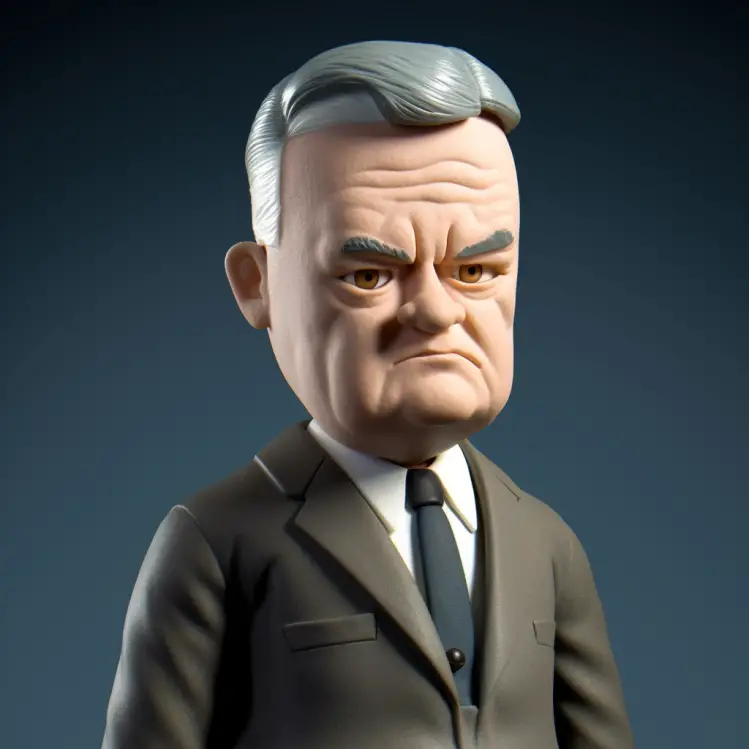
Herbert Hoover was the 31st President of the United States. He was born in Iowa in 1874 and was known for being a mining engineer and businessman. He served as Secretary of Commerce under two previous Presidents before becoming President.
As President, Hoover faced many challenges. He had to deal with economic problems, including the Great Depression, which had started during his administration. He also had to deal with tensions between the United States and other countries, including Japan and Germany.
Hoover was a strong advocate for reducing government regulation and promoting business growth. He signed the Smoot-Hawley Tariff, which raised taxes on many imported goods, but this was not popular with many Americans. He also worked to promote peace and improve international relations.
Franklin D Roosevelt ( 1933– 1945 )
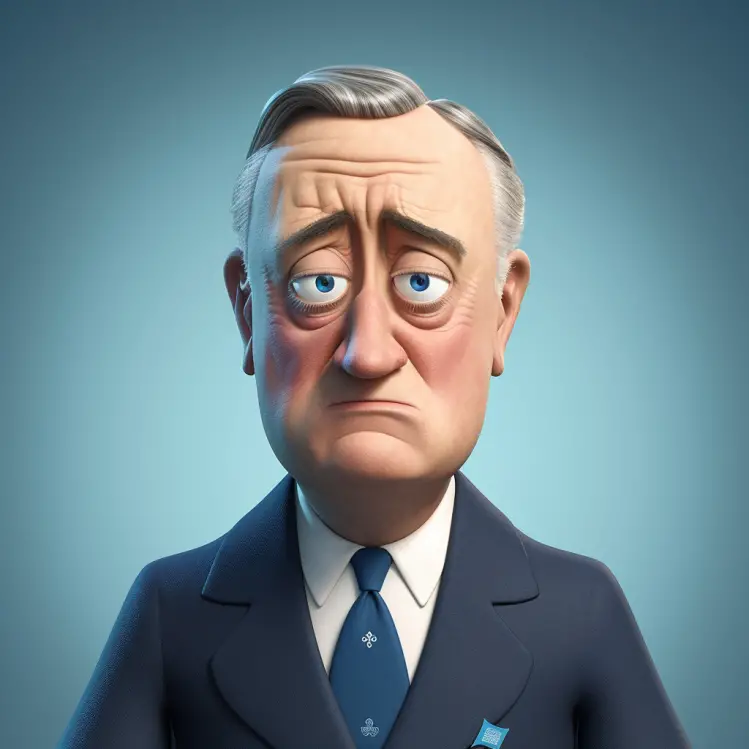
Franklin D. Roosevelt was the 32nd President of the United States. He was born in New York in 1882 and was known for being a lawyer and politician. He served as Governor of New York before becoming President.
As President, Roosevelt faced many challenges. He had to deal with economic problems, including the Great Depression, which had started during the previous administration. He also had to deal with tensions between the United States and other countries, including Germany and Japan, leading up to World War II.
Roosevelt was a strong advocate for government intervention in the economy and social programs to help those in need. He introduced the New Deal, which included many programs to help people get back to work and support struggling businesses.
He also worked to improve civil rights, including establishing the Civilian Conservation Corps to provide jobs for young men and creating the Social Security system to provide financial support for the elderly and disabled.
Harry S Truman( 1945– 1953 )

Harry S. Truman was the 33rd President of the United States. He was born in Missouri in 1884 and was known for being a farmer, soldier, and politician. He served as Vice President before becoming President.
As President, Truman faced many challenges, including the end of World War II and the beginning of the Cold War. He made the difficult decision to drop atomic bombs on Japan to bring an end to the war, and he also worked to establish international organizations like the United Nations to promote peace and cooperation between nations.
Truman was a strong advocate for civil rights and desegregation, and he issued an executive order to end racial discrimination in the military. He also worked to establish the Marshall Plan, which provided economic assistance to help rebuild Europe after the war.
Dwight D Eisenhower (1953– 1961)
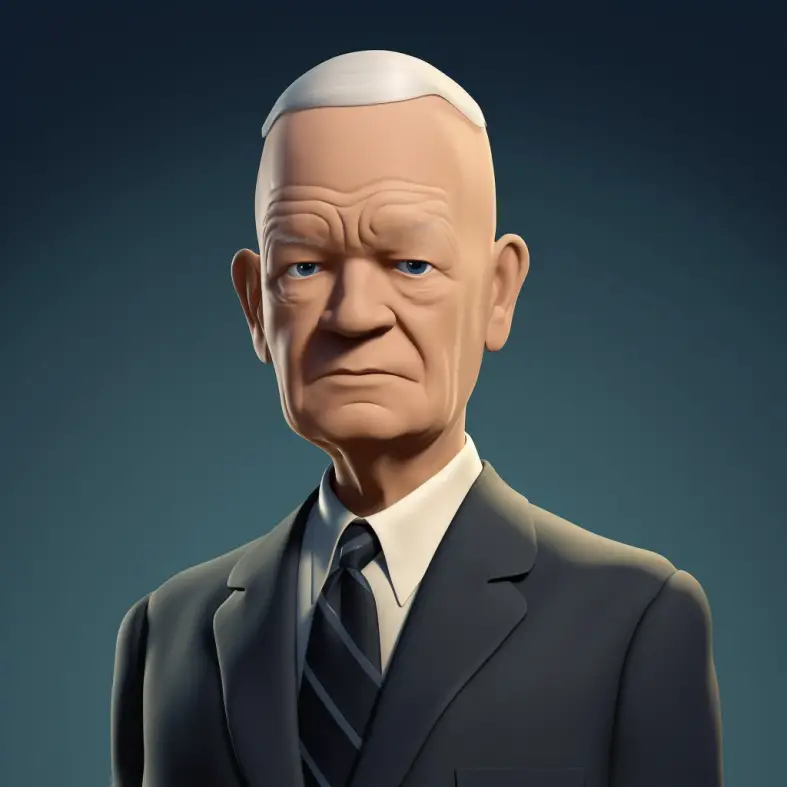
Dwight D. Eisenhower was the 34th President of the United States. He was born in Texas in 1890 and was known for being a soldier and statesman. He served as Supreme Commander of Allied Forces in Europe during World War II before becoming President.
As President, Eisenhower faced many challenges, including tensions with the Soviet Union during the Cold War. He worked to improve relations with the Soviet Union and other countries, and he introduced the “Atoms for Peace” program to promote the peaceful use of nuclear energy.
Eisenhower was also known for his domestic policies, including the creation of the Interstate Highway System, which helped improve transportation and commerce throughout the country. He also established the National Aeronautics and Space Administration (NASA), which helped advance the space program and put Americans into space for the first time.
John F Kennedy (1961– 1963)

John F. Kennedy was the 35th President of the United States. He was born in Massachusetts in 1917 and was known for his inspiring speeches and his leadership during a challenging time in American history.
As President, Kennedy faced many challenges, including the Cold War and the civil rights movement. He worked to improve relations with the Soviet Union and Cuba, and he was instrumental in creating the Peace Corps, which helped promote international cooperation and humanitarian aid around the world.
Kennedy was also a strong supporter of civil rights, and he gave a famous speech in which he declared that “all men are created equal.” He helped establish the Civil Rights Act, which helped to end segregation in public places and ensure equal rights for all Americans.
Lyndon B Johnson (1963– 1969)
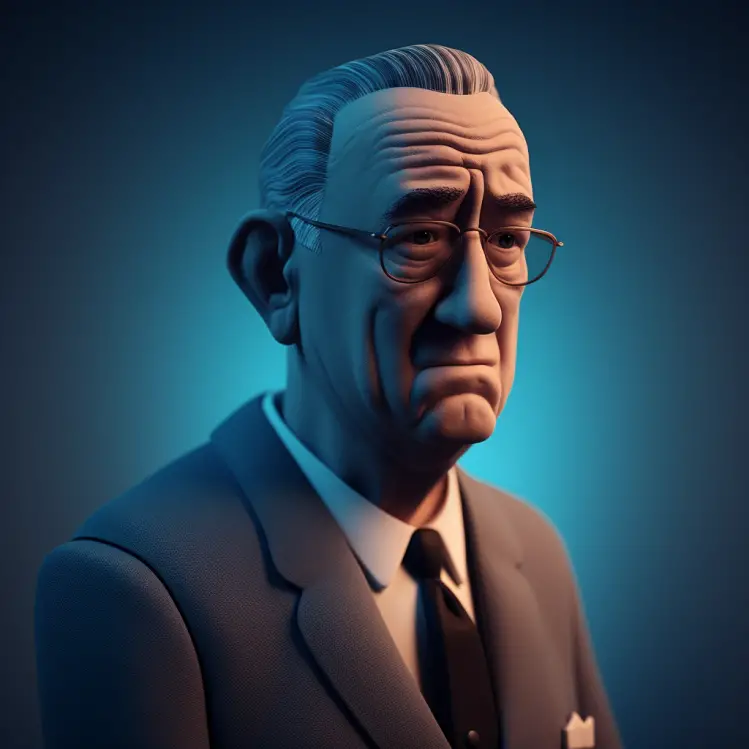
Lyndon B. Johnson was the 36th President of the United States. He was born in Texas in 1908 and became President after the assassination of John F. Kennedy. He is known for his leadership during a time of great change in America.
As President, Johnson helped pass many important laws, including the Civil Rights Act, which ensured equal rights for all Americans, and the Voting Rights Act, which ensured that all citizens could vote. He also helped create Medicare, which provides healthcare for older Americans, and he worked to improve education and fight poverty.
Johnson was also known for his involvement in the Vietnam War, which was a controversial conflict. He worked to escalate U.S. involvement in the war, which ultimately had a negative impact on his presidency and his legacy.
Richard Nixon (1969– 1974)

Richard Nixon was the 37th President of the United States. He was born in California in 1913 and became President in 1969. Nixon is known for both his accomplishments and his mistakes during his time in office.
As President, Nixon worked to improve relations with other countries, including China and the Soviet Union. He also helped pass important environmental laws, such as the Clean Air Act and the Clean Water Act. However, his presidency is also known for the Watergate scandal, which involved illegal activities by Nixon’s administration and ultimately led to his resignation in 1974.
Despite his achievements, Nixon’s legacy is often overshadowed by the Watergate scandal. However, he was an important figure in American politics who worked to improve international relations and protect the environment.
Gerald Ford (1974– 1977)

Gerald Ford was the 38th President of the United States. He was born in Nebraska in 1913 and became President in 1974 after Richard Nixon resigned. Ford is known for his efforts to heal the country after the Watergate scandal and restore trust in the presidency.
As President, Ford worked to improve the economy and reduce inflation. He also played an important role in promoting human rights and fighting against discrimination. One of his most notable actions as President was granting a pardon to Nixon, which was controversial at the time.
Despite his short time in office, Ford made significant contributions to American politics and history. He was a strong leader who worked to restore faith in the presidency and promote important values like equality and justice.
Jimmy Carter (1977– 1981)

Jimmy Carter was the 39th President of the United States. He was born in 1924 in Georgia and grew up on a farm. He studied at the United States Naval Academy and served in the Navy for several years before entering politics.
Carter was known for his focus on human rights and environmental protection. During his presidency, he created the Department of Energy and promoted the use of renewable energy. He also worked to improve relations with other countries and was awarded the Nobel Peace Prize in 2002 for his efforts toward peace and conflict resolution.
One of Carter’s most notable accomplishments was brokering the Camp David Accords in 1978, which brought peace between Israel and Egypt. He also helped negotiate the return of the Panama Canal to Panama and worked to reduce tensions between the United States and the Soviet Union during the Cold War.
Ronald Reagan (1981-1989)

Ronald Reagan was the 40th President of the United States, serving from 1981 to 1989. He was a famous actor before entering politics, and appeared in many movies and television shows. As President, he was known for his conservative policies, including a focus on reducing government regulations and taxes.
During Reagan’s presidency, the economy grew rapidly and the unemployment rate fell. He also increased military spending, which led to the end of the Cold War with the Soviet Union. Reagan was a strong supporter of the idea of individual freedom and free markets, and he believed that these principles could help to create a better society.
Reagan is often remembered for his strong leadership and his ability to inspire people with his speeches. He was also known for his friendly personality and his sense of humor. Even though he faced criticism during his time in office, Reagan remains a beloved figure in American history and is often considered one of the most important Presidents of the 20th century.
George H. W. Bush (1989-1993)

George H.W. Bush was the 41st President of the United States, serving from 1989 to 1993. Before becoming president, he served as a congressman, ambassador to the United Nations, director of the CIA, and Vice President under Ronald Reagan. He was also a World War II veteran.
As president, Bush led the country during a time of major international changes, including the fall of the Berlin Wall and the collapse of the Soviet Union. He helped lead the international coalition that fought in the Persian Gulf War to remove Iraqi forces from Kuwait. He also signed the Americans with Disabilities Act, which helps to protect the rights of people with disabilities.
Bush was known for his commitment to volunteerism and public service. He founded the Points of Light Foundation to encourage and recognize volunteer efforts, and he often spoke about the importance of community involvement and helping others. He also supported education and environmental protection, and he signed important environmental laws, such as the Clean Air Act.
Bill Clinton (1993-2001)

Bill Clinton was the 42nd President of the United States, serving from 1993 to 2001. He was born in Arkansas in 1946 and grew up to become a lawyer and politician. He was known for his charisma and ability to connect with people, and he was the first president from the Baby Boomer generation.
As President, Clinton focused on issues like the economy, healthcare, and the environment. He signed a law that helped balance the federal budget and oversaw a period of economic growth. He also signed the North American Free Trade Agreement (NAFTA), which opened up trade between the United States, Canada, and Mexico.
Clinton’s presidency was also marked by some controversies, including an investigation into his personal life and an impeachment trial in 1998. Despite these challenges, Clinton is often remembered as a skilled politician and a champion of progressive values, including equal rights for women and minorities.
George W. Bush (2001-2009)
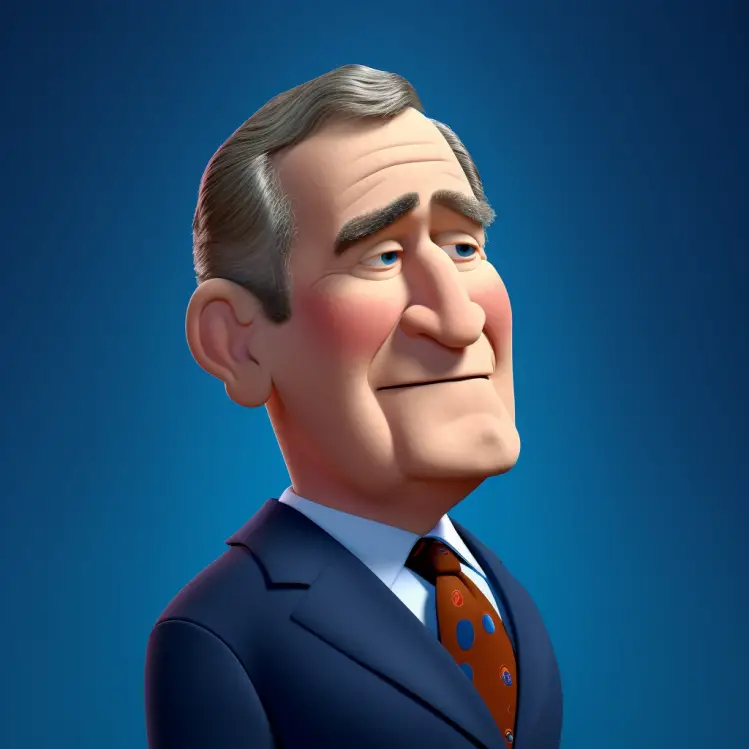
George W. Bush served as the 43rd President of the United States from 2001 to 2009. He was born in Connecticut in 1946, and he grew up in Texas. Bush was a businessman and a governor before he became President.
During his presidency, the United States faced major challenges such as the September 11 terrorist attacks in 2001 and the 2008 financial crisis. Bush led the country’s response to these events and initiated military action in Afghanistan and Iraq as part of the War on Terror.
Bush also pursued domestic policies, such as education reform, tax cuts, and the Medicare prescription drug benefit. However, his presidency was controversial and faced criticism for its handling of the wars and other issues.
After leaving office, Bush focused on philanthropy and public speaking. He is known for his work with veterans and for promoting democracy and human rights around the world.
Barack Obama (2009-2017)

Barack Obama was the 44th President of the United States and the first African American to hold the position. He was born in Hawaii in 1961, and he was a senator before he became President. He served two terms in office from 2009 to 2017.
During his presidency, Obama was known for his efforts to improve access to healthcare, combat climate change, and reduce economic inequality. He signed the Affordable Care Act into law, which helped millions of Americans get health insurance.
He also signed the Paris Agreement, which aimed to reduce carbon emissions and combat climate change. In addition, he signed the Dodd-Frank Wall Street Reform and Consumer Protection Act, which helped regulate the financial industry and protect consumers.
Obama’s presidency was also marked by significant foreign policy events, such as the killing of Osama bin Laden, the withdrawal of troops from Iraq, and the normalization of relations with Cuba.
He was awarded the Nobel Peace Prize in 2009 for his efforts to promote international cooperation and nuclear disarmament.
Donald Trump (2017-2021)

Donald Trump served as the 45th president of the United States from January 2017 to January 2021. He was a businessman and television personality before entering politics, and was known for his outspoken and controversial statements.
During his presidency, Trump pursued policies aimed at reducing immigration, reducing taxes and regulations on businesses, and increasing military spending.
He also prioritized the renegotiation of trade agreements and the strengthening of America’s relationships with its allies.
However, Trump’s presidency was also marked by controversy, including his impeachment by the House of Representatives for abuse of power and obstruction of Congress, his handling of the COVID-19 pandemic, and his promotion of conspiracy theories and misinformation.
His presidency ended with the storming of the US Capitol by his supporters on January 6, 2021, after he refused to accept the results of the 2020 presidential election.
Joe Biden (2021 – present)
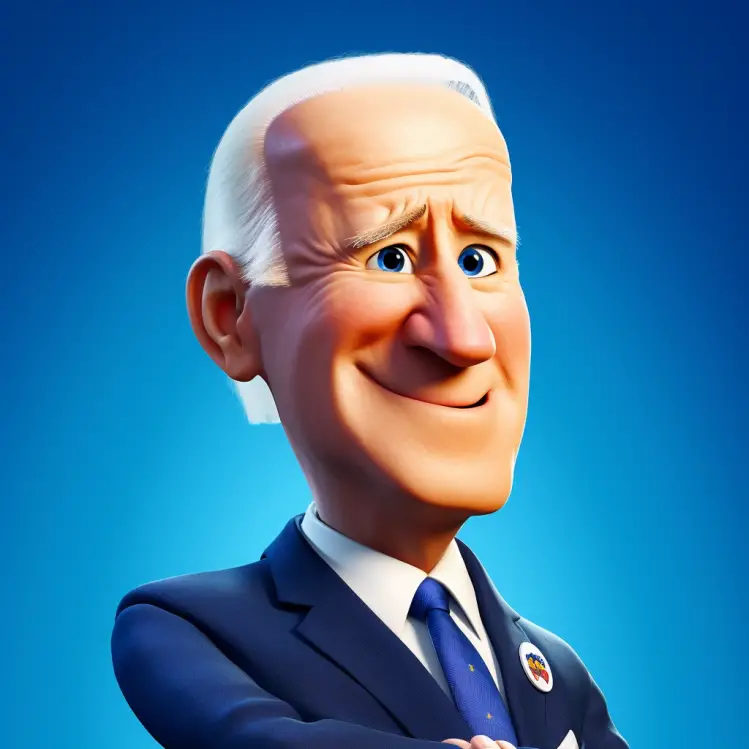
Joe Biden is the 46th and current President of the United States. He was inaugurated on January 20, 2021, and he is the oldest president to take office at 78 years old. Prior to becoming President, he served as the Vice President under Barack Obama for eight years, from 2009 to 2017.
As President, Joe Biden has focused on a number of important issues facing the country, including the COVID-19 pandemic, climate change, and racial inequality. He has also sought to unite the country and promote a message of healing and cooperation.
In his first few weeks in office, he signed several executive orders aimed at addressing these issues, including rejoining the Paris Climate Agreement and implementing a national mask mandate to slow the spread of COVID-19.
Joe Biden has a long history of public service, having served in the Senate for 36 years before becoming Vice President. He is known for his empathy and his ability to connect with people from all walks of life.
He has faced many challenges throughout his career, including personal tragedies and political setbacks, but he has always remained committed to his values and his belief in the power of government to make a positive difference in people’s lives.

Useful Websites



